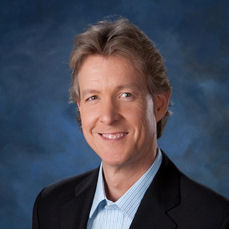

I receive a fair number of calls from adults who have intermittent numbness and tingling in the fingers that the doctor has ruled out as not a dangerous disease or that there is nothing to show for this intermittent pain. And I am the guy who usually gets the calls after no one can figure out what the problem is. After all it’s intermittent, it could be stress, it could be from typing or other habits, it could be how they sleep, and a myriad of other possibilities. So what advice do I have for this kind of situation, and is there an answer that may help you? Let’s find out.
If you’ve been in this situation, I know I have, then you know what happens: You’re doing your daily activities and this numbness or tingling in the fingers, or forearms, or just pain starts interfering with what you’re doing. So what do you do, other than stretch or rub your hands? And while this sometimes helps, more often it does not.
Well once your doctor has cleared you of anything major, there is usually a predictable set of physical habits that we get into that can end up hurting our hands. And most often, they begin with civilizations worst physical habit: Tight Shoulders!
Now most people know that having tight shoulders means their shoulders are pulled up toward the ears. What most people DON’T know is that those tight shoulder muscles root onto the sides of the neck, and that when the shoulders go upwards, they pull against the neck bones which can compress the neck, and can then pinch the nerves that go all the way down to your fingers! Meaning simply, when the shoulders go up, the neck gets pulled down! Add to this, that when your shoulders are tight, the body is bent forward, with the chest sinking downward, which rounds the shoulders inwards, and again, with forward rounded shoulders, the nerves that reach down into the hands and fingers through the top of the shoulder are again pinched at the top of the arm! Add yet again to this already nasty set of ‘pinched everything’, you could also hurt the rotator muscles in the shoulders which then make it difficult to lift up the arms!
This means that if you have tight shoulders that you’re not doing anything about, you stand a very real chance of causing extra discomfort in your hands and fingers because those Dog-Gone tight shoulders will put your body in a position where things get pinched. Leave the shoulders too tight for too long and eventually your body will suffer for it. So here’s what to do about it:
- Shoulder rolls. Lifting up tall while relaxing the neck, roll both shoulders around front to back. Lift them up tall toward the ears, and as they go back, let them drop downwards as if the shoulder blades are sliding down your back. Breathe in deeply as the shoulders come up to add that little bit of breath to lift you up taller. Do this 10 times for each exercise, one to as many times as is comfortable during the day. Feel the shoulders letting go, and the neck lengthening, breathing deeply the entire time.
- Repeat this, but go the other way 10 times.
- Then roll each shoulder individually, front to back 10 times on each side.
- (These exercises are best done while being seated for safety, and if you feel comfortable enough, do them while standing with your knees bent a little.)
- Then see a good Physical Therapist who can give you some more pointers catered to your body! And if need be your doctor.
My hope is that I can show you how the shoulders and neck left unchecked are the most common root of aches and pains in the hands/fingers that don’t seem to have a traceable medical concern. Please don’t take these issues lightly; while this article is logical, it doesn’t replace your doctors/PT’s opinion! Learn to recognize chronically tight shoulders for what they are; a very dangerous position for the body in the long term, and learn to relax them accordingly every day. Good luck and blessings from the Wizard!
——————————————————————-
John Paul Ouvrier, known as The Wizard of Youth, is a fitness trainer who specializes in working with older adults. Please consult with your doctor or medical professional before beginning this or any exercise program or advice. The contents of this article do not constitute medical advice. Contact him at John@wizardofyouth.com, and bring him in to entertain your audiences! http://wizardofyouth.com. & http://fitness4charity.org

Leave a Reply